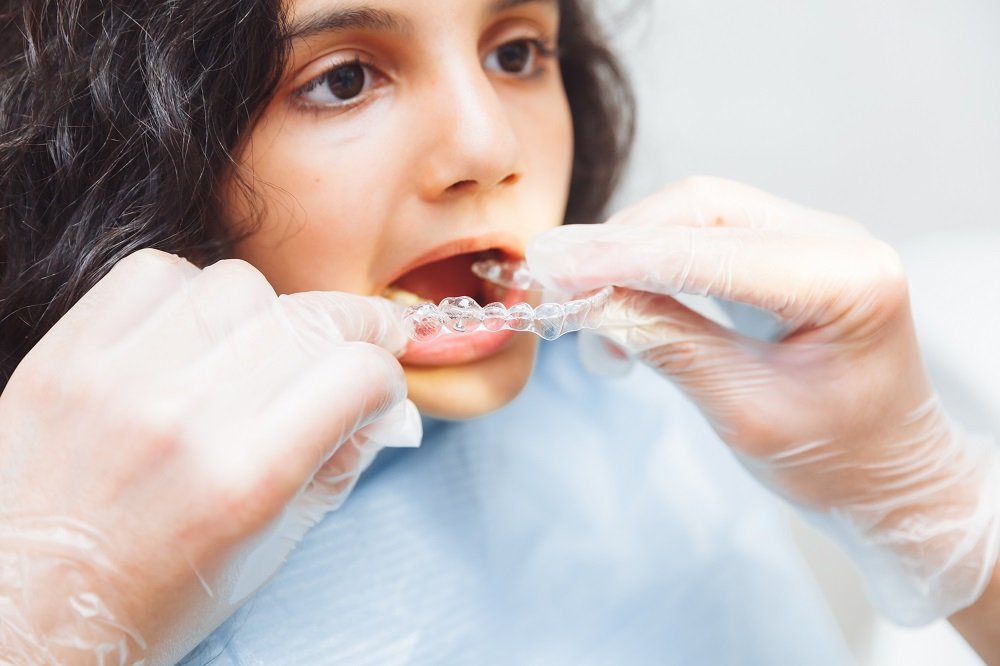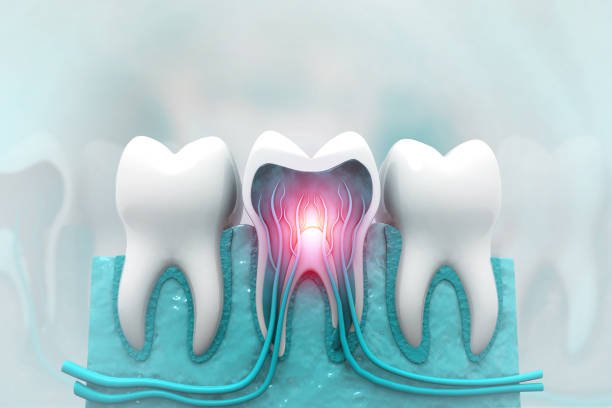Did you know that a misaligned smile can affect your child's confidence, oral health, and even their ability to speak clearly?
Yes, that’s true!
And if you think your child lacks that confidence, a misaligned smile can be one of the biggest reasons.
The American Association of Orthodontists reports that nearly half of all children, around 4 million , will require orthodontic treatment to correct misaligned teeth and jaws.
Well, there is always a solution, and one of them is getting Invisalign treatment from Invisalign Specials McKinney TX, dentist.
Invisalign offers a safe and effective alternative to traditional braces for many children and teens.
So, if you are wondering whether Invisalign is a good fit for your child or does your child need it or not.
Keep reading to learn about the key signs!
What is Invisalign?
Invisalign is a modern orthodontic treatment that uses a series of clear, removable aligners to gradually straighten teeth. Unlike traditional metal braces, Invisalign aligners are virtually invisible and comfortable.
The aligners are custom-made for each patient using 3D computer imaging technology. They gently shift the teeth into the desired position over time. Every 1-2 weeks, the patient switches to a new set of aligners to continue the straightening process.
Invisalign offers several advantages compared to traditional braces:
Clear and virtually invisible
Removable for eating and brushing
Smooth plastic aligners are more comfortable than metal wires and brackets
Fewer food restrictions since aligners are removable
Easier to maintain oral hygiene without the hassle of wires and brackets
Moreover, Invisalign are an excellent option for children, teens, and adults who want to straighten their teeth discreetly and comfortably.
9 Key Signs Your Child Might Need Invisalign!
Now let us show you the 9 key signs that your child might need Invisalign, explaining what each sign means, the potential problems it can cause, and how Invisalign can help:
1. Overbite: Top Teeth Overlap Bottom Teeth
An overbite occurs when the top front teeth overlap too far over the bottom front teeth when biting down. This can lead to excessive wear on the front teeth, jaw pain, and difficulties with chewing or biting. Invisalign gradually shifts the teeth into proper alignment to correct an overbite.
2. Underbite: Bottom Teeth Overlap Top Teeth
An underbite is the opposite of an overbite, where the bottom front teeth protrude further than the top front teeth. This misalignment can cause the front teeth to wear down prematurely, making it difficult to chew properly. Invisalign treatment can fix an underbite by realigning the teeth.
3. Protrusion: Top Teeth Protrude Over Bottom Teeth
With a protrusion, the top front teeth angle outwards, sticking out over the bottom teeth. This can make the teeth more susceptible to chips or fractures and affect your child's profile appearance. Invisalign helps pull the protruding teeth back into the proper position.
4. Open Bite: Front Teeth Don't Touch
When biting down, an open bite means a vertical gap between the top and bottom front teeth. This interferes with chewing and can cause speech issues. The aligners gently close this gap over time.
5. Spacing Issues: Excessive Gaps Between Teeth
Excessive gaps or spacing between teeth can trap food debris and increase the risk of gum disease and cavities. Invisalign aligners shift the teeth into proper alignment, eliminating unsightly gaps.
6. Crooked Teeth: Misaligned or Rotated Teeth
Misaligned or severely rotated teeth are harder to keep clean, increasing cavity risk. They can also detract from your child's smile. Invisalign guides each tooth into its ideal position.
7. Functional Problems: Difficulty Chewing or Speaking
Bite misalignments like crossbites or underbites can make it difficult to chew food properly. Invisalign treatment corrects the bite for improved function.
8. Speech Issues: Speech Impediments Due to Misalignment
Significant orthodontic issues like an open bite or severe misalignments can affect your child's ability to articulate words clearly. Properly aligned teeth improve speech.
9. Oral Pain: Discomfort in Mouth or Jaw
Misaligned teeth can put excess pressure on the teeth, jaws, and facial muscles, leading to discomfort, headaches, or jaw pain. Correcting the alignment with Invisalign alleviates this oral pain.
Overall, Invisalign offers an effective, comfortable, and discreet way to address all of these orthodontic issues in a child or teen. The clear plastic aligners gently and gradually reposition the teeth over time for a healthy, functional, and beautiful smile.
Benefits of Invisalign for Children
Here are the benefits of Invisalign for children explained in detail below:
Improved Confidence: A straight, beautiful smile can greatly affect a child's self-esteem and confidence. Crooked or misaligned teeth can often lead to bullying or teasing, which can severely impact a child's self-image and social interactions. With Invisalign, your child can straighten their teeth discreetly without the embarrassment of metal braces. As their smile improves weekly, you'll notice a boost in their confidence and overall happiness.
Perfect Oral Health: Misaligned teeth are hard to clean properly, which increases the risk of cavities, gum disease, and other dental problems down the road. Properly aligned teeth are easier to brush and floss thoroughly, reducing trapped food particles and plaque buildup. Invisalign treatment sets your child up for a lifetime of good oral hygiene habits and better overall dental health.
Comfortable and Aesthetics: Unlike traditional metal braces with poking wires and brackets, Invisalign's smooth, plastic aligners are extremely comfortable to wear. The aligners are crystal-clear and virtually invisible, so your child can straighten their teeth without feeling self-conscious about their appearance. No more avoiding smiles in pictures!
Removable Aligners: One of Invisalign's biggest advantages is that the aligners are removable. Your child can simply take them out to eat all their favorite foods without any restrictions and to brush and floss with ease. This flexibility makes it much easier for kids to maintain good oral hygiene throughout treatment. The aligners are designed to be removed for up to 2 hours daily.
With Invisalign, your child gets all the benefits of a perfectly straight smile without traditional braces' hassle and visual profile. The discreet, comfortable aligners boost confidence while allowing them to enjoy all their normal activities.
But make sure to get them done by a professional dentist in McKinney.
Consultation and Next Steps!
As mentioned above, get Invisalign done by a professional. Here are the details on scheduling a consultation and the next steps for getting Invisalign treatment for your child:
If you've noticed any key signs that your child may benefit from Invisalign, the first step is to schedule a consultation with an experienced Invisalign specialist in McKinney, TX, providers in your area. Look for an orthodontist or dentist with significant experience providing Invisalign treatment for children and teenagers.
During the consultation, the doctor will thoroughly examine your child's mouth, teeth, jaw, and bite. They will likely take X-rays, teeth impressions, or digital scans to get a complete picture of your child's orthodontic condition.
Be prepared to discuss your child's oral habits, any issues with chewing/speaking, and whether thumb-sucking or tongue-thrusting habits played a role in the misalignment. The doctor will want to understand the full scope of the issues to create an effective treatment plan.
After the examination, the doctor will sit down with you both to discuss whether Invisalign is the right course of treatment for your child's specific needs. If so, they will explain the treatment process, timeline, cost, and any limitations or special considerations.
This is the perfect time for you and your child to ask any questions you may have about Invisalign. Don't hesitate to raise concerns about cost, maintenance, treatment duration, etc. An open discussion helps ensure you make the best decision for your child.
After completing Invisalign treatment, the doctor can use computer imaging to preview how your child's new smile will look. For many children, seeing this preview can build their excitement.
If you choose to move forward with Invisalign after the consultation, the doctor will take accurate teeth impressions or digital scans. These records are used to custom-manufacture your child's personalized sequence of aligners.
Don't be afraid to look around and get multiple professional opinions before deciding on a provider you feel comfortable with. Helping your child achieve a beautiful new smile is an investment, so you'll want to partner with the right orthodontist from the start.
Conclusion!
So these are signs that you must notice. Investing in your child's smile with Invisalign from Valley Creek Dental in McKinney, TX, can boost their confidence and oral health for life.
Valley Creek's experienced Invisalign providers offer personalized treatment plans and expert care to ensure your child achieves a beautiful, aligned smile discreetly and comfortably.
Don't wait - schedule a consultation with the leading Invisalign specialists in McKinney today!



